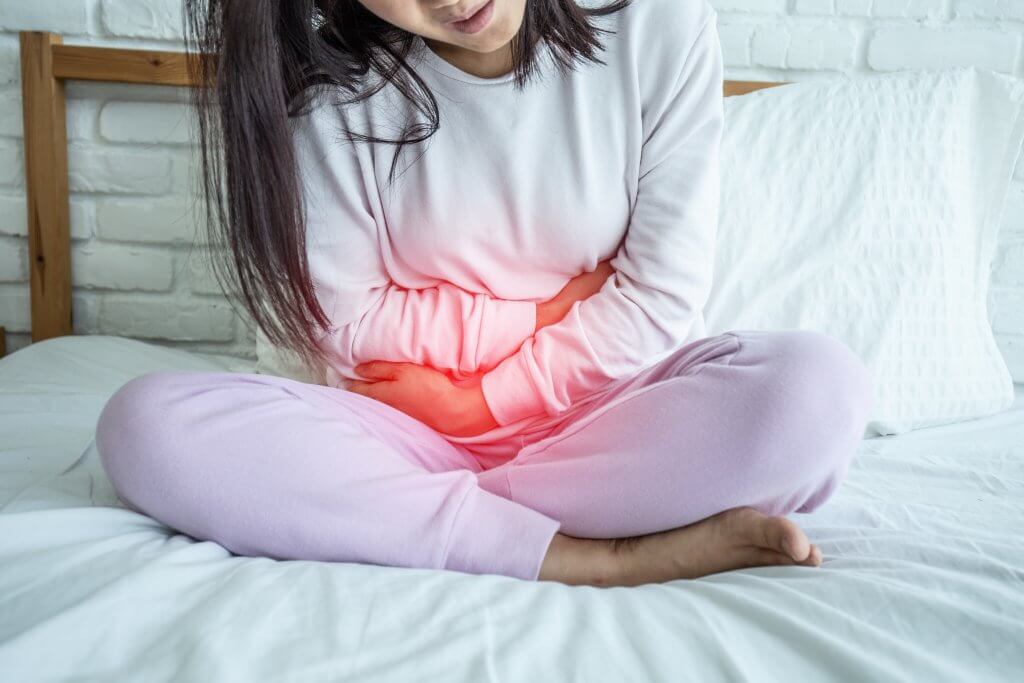Is There a Cure for IBS (Irritable Bowel Syndrome)?
Everyone experiences bouts of gastrointestinal distress in their lifetime. However, there are some people that have persistent symptoms of chronic conditions. Irritable bowel syndrome (IBS) is the most common GI disorder. It is estimated to affect 10-15% of the world’s population. Because it is a common condition, many people want to know: is there a cure for IBS? We will answer that question and get to know a little more about irritable bowel syndrome.

What is IBS?
Irritable bowel syndrome, commonly referred to by the initials IBS, is a disorder affecting the large intestines. It is a common disorder, but only a small number of people with the disorder have severe symptoms. IBS should not be confused with inflammatory bowel disorders (IBD) like Crohn’s disease or ulcerative colitis. An IBD can cause changes in the intestinal tissues and lead to complications like an increased risk of colon cancer. IBS does not change the intestinal tissues or increase cancer risk.
Common Symptoms
Most people who have IBS will experience some common symptoms. Symptoms may be more severe at certain times and then improve or even go away later before coming back. These symptoms may include:
- Abdominal pain
- Cramping
- Excess Gas
- Bloating
- Diarrhea or constipation
- People may experience alternating bouts of each
- Mucus in the stool
Some people experience more severe symptoms. If you have any of the following symptoms, you should see a doctor to rule out other more serious conditions:
- Rectal bleeding
- Weight loss
- Iron deficiency anemia
- Unexplained vomiting
- Diarrhea at night
- Persistent abdominal pain and bloating that is not relieved by a bowel movement or passing gas
Causes & Triggers
No definitive cause for irritable bowel syndrome has been found. There are factors that have been identified as part of IBS but are not the cause. These factors include:
- Intestinal inflammation
- Nervous system abnormalities
- Intestinal contractions
- Infections that cause diarrhea
- Fluctuations in gut bacteria
IBS is not directly caused by diet or lifestyle, but certain things may trigger an IBS flare-up, including:
- Certain foods
- Hormones
- Stress
Is There a Cure for IBS?
Unfortunately, there is no permanent cure for IBS. It is a chronic condition that people deal with for life. Symptoms will come and go during different periods, but the condition is never completely cured or resolved.
However, there is good news: Irritable bowel syndrome can be well managed with lifestyle changes and medication. You should consult your doctor if you think you have IBS to develop a treatment plan and improve your quality of life.
Treatment Options for IBS
Treatment options for IBS are aimed at managing symptoms to improve your quality of life. While there is no cure for IBS, managing symptoms can help prevent irritable bowel syndrome from interfering with everyday activities. Common treatments for IBS include lifestyle changes, supplements, and some medications. You should always work with a doctor to come up with a treatment that is right for you, especially when it comes to restrictive diets and taking medications.
Lifestyle Modifications
- Eat a high fiber diet to keep your digestive tract moving regularly.
- Eat smaller, more frequent meals to promote easy and healthy digestion.
- Limit trigger foods, like foods high in fat.
- Drink plenty of fluids to stay hydrated.
- Get regular exercise to aid in digestion, lift your mood, and manage stress.
- Manage stress with activities you enjoy, practicing mindfulness/meditation, or talk therapy.
- Get enough sleep to improve and maintain overall physical and mental health.
- Keep a food diary to track foods that worsen symptoms.
- Depending on your specific symptoms and findings from keeping a food diary, your doctor may suggest cutting out foods that make you gassy (certain raw fruits and vegetables, carbonated beverages, caffeine), foods containing gluten, and foods with certain carbohydrates known as FODMAPs.
Supplements and Medication
- Probiotics can help with gut health, strengthen your immune system, and improve the way your body absorbs nutrients from food.
- Fiber supplements with psyllium and fluids can ease constipation
- Tricyclic antidepressants can not only treat depression but can help reduce intestinal pain
- SSRI antidepressants can also help with depression, pain, and constipation
- Laxatives for constipation
- Anti-diarrheal medication
- Anticholinergic medications to relieve bowel spasms
- Other IBS-specific medications: there are certain medications that have been approved for the treatment of IBS. Talk to your doctor about which may be best for you.
Make an Appointment
Birmingham Gastroenterology Associates has more than 40 years of experience treating disorders and diseases of the digestive tract. If you are struggling with a condition like irritable bowel syndrome, our gastroenterologists can help you with a plan for treatment and management. Call us at (205) 271-8000 to make an appointment at one of our convenient locations in the Birmingham area.

